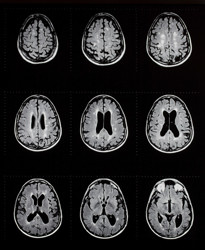Pharmacogenomics for multiple sclerosis
In MS, the immune system targets the myelin sheath around nerve cells. A damaged myelin sheath translates into distorted nerve impulses traveling to and from the brain and spinal cord, causing a variety of symptoms. MS has a variable clinical picture and patients show a diverse response to standard therapeutic treatments. The existence of genetic determinants that shape patients' response to therapy is gaining momentum in the field of MS research. Based on this, scientists on the EU-funded 'United Europeans for the development of pharmacogenomics in multiple sclerosis' (UEPHA-MS) project proposed a pharmacogenomics analysis in patients with MS in response to standard therapies (interferon (IFN) beta, glatiramer acetate (GA) and natalizumab). Toll-like receptor 4 and IFN signalling pathways were key factors in IFN-beta therapy response while natural killer cells were a requisite for other clinical responses. Researchers validated the genetic component by selecting over 380 single nucleotide polymorphisms associated with therapy outcome as well as susceptibility to disease. Since MS is a heterogeneous disease, predictive and diagnostic biomarkers are essential for patient stratification. To this end, the UEPHA-MS project performed omics analysis in patients and identified drug response biomarkers as well as disease severity biomarkers. The latter substantiated a role for T and B lymphocyte activation pathways in MS severity. Considerable part of the UEPHA-MS project entailed the training of young investigators in cutting-edge technologies for biomarker research. The activities included laboratory training, courses and workshops, as well as three summer schools.Taken together, the UEPHA-MS findings considerably enhanced our capacity to perform prognosis, diagnosis and predict the outcome of therapy for MS patients. The generated information will undoubtedly make drug management and monitoring in MS much more precise and effective.







